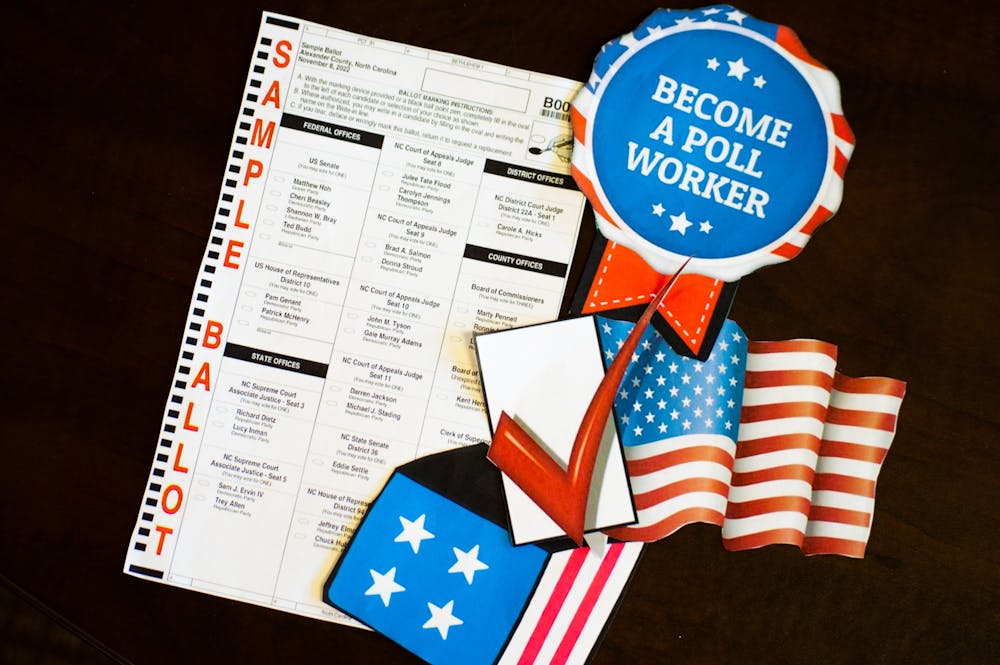This election season, poll workers and poll observers will be present at each polling site in Orange County to serve the community.
Poll workers, or precinct election officials (PEOs), staff polling sites during the early voting period and on Election Day. They check in voters, provide ballots and assist voters if needed.
“Essentially, they are our frontline election workers,” Jason Roberts, a UNC professor of political science and member of the Orange County Board of Elections, said.
Roberts said PEOs conduct the “retail part” of the voting process by interacting with voters at polling sites.
PEOs are paid county workers comprised of assistants and judges. Judges make decisions regarding voter and ballot issues while assistants aid judges in their duties, Roberts said.
In North Carolina, after completing an application, PEOs serving as judges are recommended by the Democratic and Republican parties and appointed by their county's board of elections. Assistants also must fill out an application, but they may be recommended by parties or recruited by the local board of elections.
In contrast to PEOs, Jamie Cox, chairperson of the Orange County Board of Elections, said poll observers are volunteers who are appointed by the parties. They are not affiliated with the county board of elections.
Poll observers include inside observers and outside observers, each charged with different tasks and required to follow different guidelines regarding interactions with voters.
Inside observers are responsible for watching the voting process as it happens inside a precinct and ensuring transparency by identifying problems and reporting them to the chief judge or one-stop manager, Cox said.



